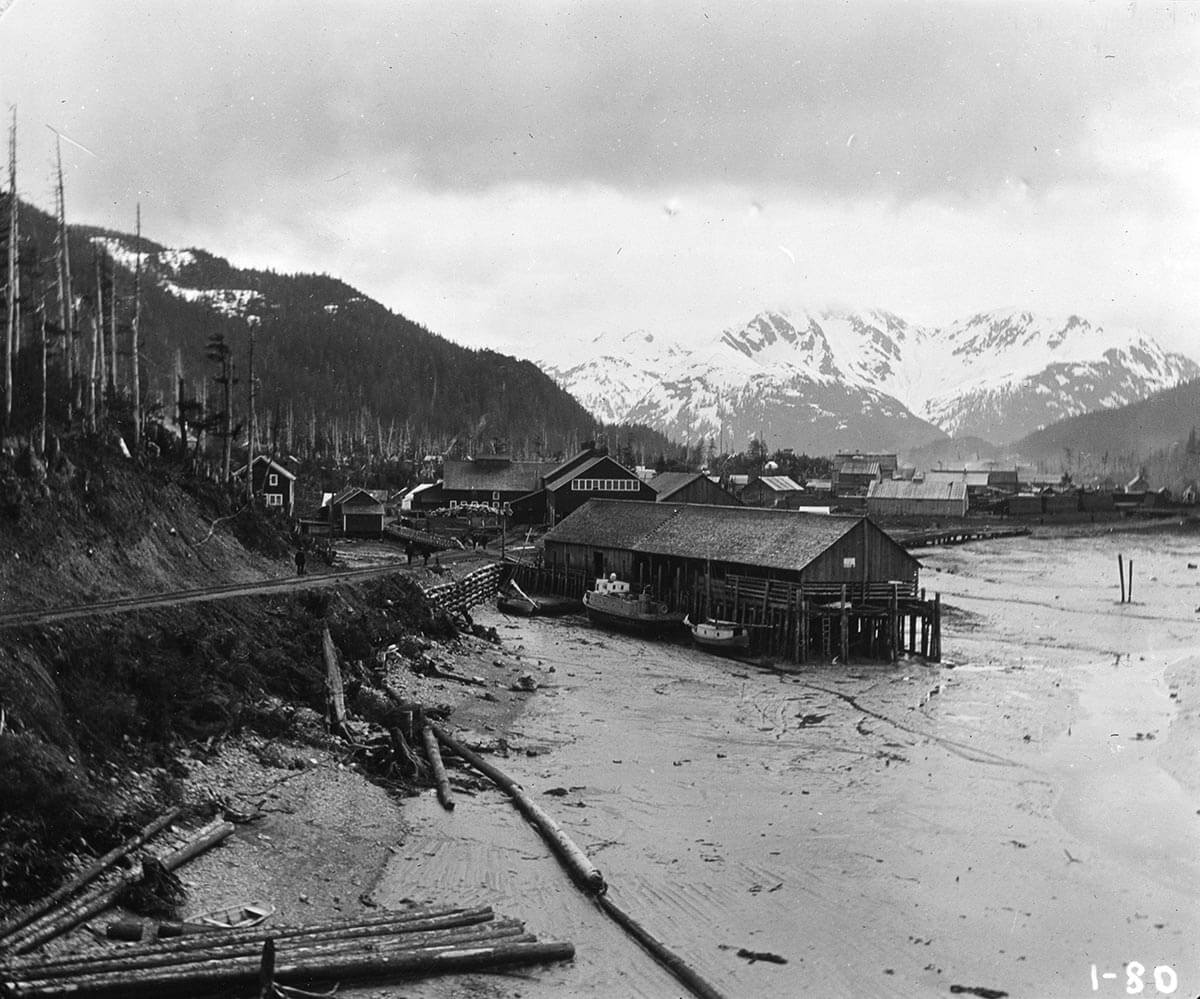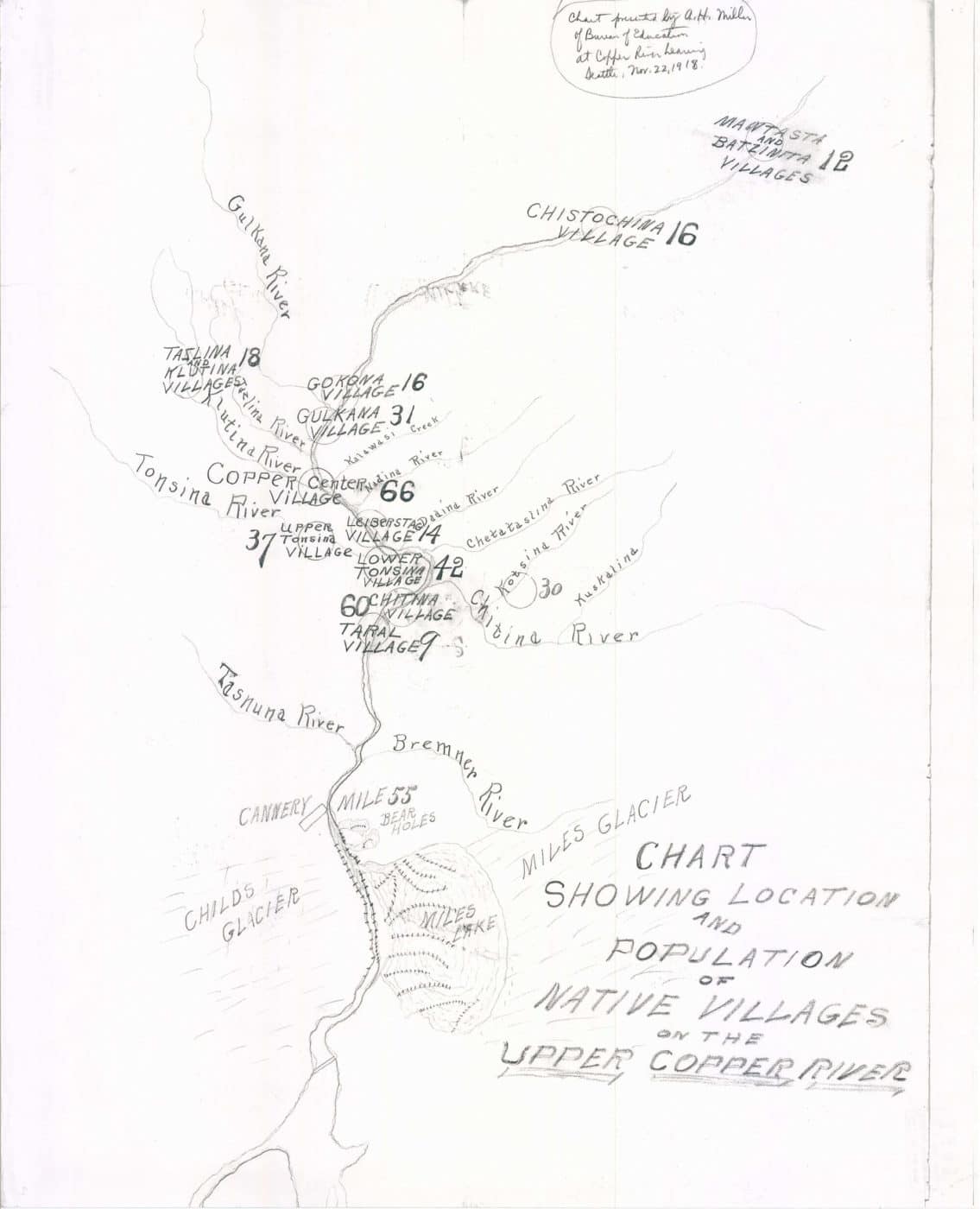Next in a series of article on Ahtna’s history and the Alaska Native Claims Settlement Act
By Bill Simeone
Laws like the Organic Act and the Alaska Territorial Act seemed to acknowledge the property rights of individual Alaska Natives, but said nothing about hunting and fishing. Congress passed fish and game legislation in 1902, 1924 and 1925, but the new laws did not address the position of Alaska Natives. The territorial legislature had no authority to regulate fish and game in Alaska as that power was reserved for Congress.

A commercial salmon cannery opened at the mouth of the Copper River in 1889. Salmon are essential to the Ahtna, but they had no treaty protecting their rights to the fishery. The Ahtna complained about the cannery with no result. In 1915, commercial fishing began in the Copper River at Abercrombie Canyon, and the commercial harvest jumped from 653,402 fish in 1915 to 1,253,129 in 1919.
The Ahtna protested. Gallagher, Joe Nicolai, Chief Goodlataw and Johnny Goodlataw hired an attorney in McCarthy, who wrote letters to Washington, D.C., to stop the in-river fishery. Frank Billum recalled that his uncle, Douglas Billum, and Joe Bell’s dad told a judge in Chitina: “No fish, our Copper River Indian may have no fish to eat anymore.”
Despite potential damage to the fishery, the U.S. Department of Commerce was reluctant to restrict the commercial fishery, believing the problem lay not with the canneries, but with the Ahtna, who could never compete “if they continue to adhere to their primitive methods of fishing” and their “indifference toward continued and persistent effort and industry.” Besides, the secretary of Commerce wrote, “the fisheries companies have rights that are to be respected” and there is a question “as to whether a fishery enterprise which produces food for the world at large must be made to suffer in order that 300 Indians can secure fish easily.”
Nevertheless, regulations partially closing the Copper River to commercial fishing were adopted in 1918, and in 1924 Congress passed the White Act authorizing regulations governing where, when and how salmon and other fish could be taken for commercial purposes in Alaska.
The battle to conserve the salmon came down to a question of who should benefit – the canneries or the Ahtna? For centuries, the Ahtna had engaged in a subsistence fishery that met their needs and, when the fishery was threatened, they challenged the commercial fishing industry and demanded the government do something. At the same time, the government and fishing industry questioned the Ahtna’s right to harvest salmon, claiming they stood in the way of progress. In the end, the welfare of the Ahtna did not matter. The commercial fishery continued. But because of the White Act, the Ahtna were prohibited from selling salmon and, therefore, making a living from the natural resources in their territory.

